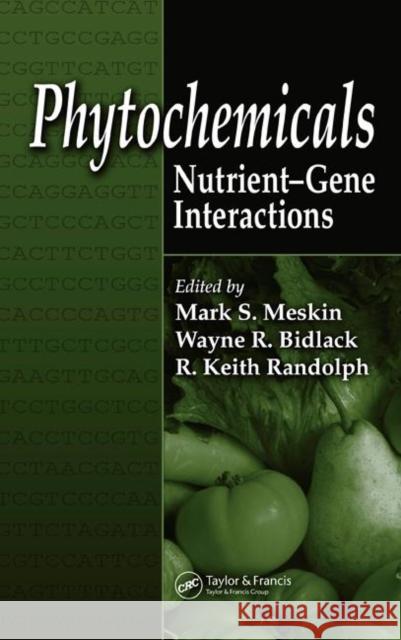Phytochemicals : Nutrient-Gene Interactions » książka
Phytochemicals : Nutrient-Gene Interactions
ISBN-13: 9780849341809 / Angielski / Twarda / 2006 / 211 str.
Phytochemicals : Nutrient-Gene Interactions
ISBN-13: 9780849341809 / Angielski / Twarda / 2006 / 211 str.
(netto: 927,20 VAT: 5%)
Najniższa cena z 30 dni: 906,73
ok. 16-18 dni roboczych.
Darmowa dostawa!
Introduces methodologies for identifying genes regulated by diet, genotype, and genotype-diet interactions Highlights the benefits of controlled clinical trials in dietary supplement development, suggesting both in vivo to ex vivo testing Details adipose tissue gene expression in the context of inflammation and the pathogenesis of obesity Explores the molecular mechanisms that underlie resveratrol activity and its role in cardiovascular health Explains the mechanisms of protective action for components of whole grains Dedicates the final chapter to the non-antioxidant cellular properties of vitamin E Understanding phytochemical-gene interactions provides the basis for individualized therapies to promote health as well as prevent and treat disease. The authors of Phytochemicals: Nutrient-Gene Interactions examine the interactions between phytochemicals and the human genome and discuss the impact these interactions have on health, aging, and chronic conditions such as inflammation, heart disease, obesity, type II diabetes mellitus, and cancer. Keeping pace with the most important trends in phytochemical research, the authors accentuate the latest understanding on the use of controlled clinical trials, new screening technologies, and the completed human genome project for researching the pharmacokinetics, safety, and efficacy of phytochemicals. The book covers a balanced range of topics beginning with experimental strategies and methodologies for identifying significant interactions between diet, genetic variants, and different markers of cardiovascular disease, inflammation, and obesity. Different authors explain the mechanisms of protective action that link diets rich in omega-3 fatty acids, unsaturated fats, fruits, vegetables, and whole grains with a decreased risk of chronic and degenerative diseases. They also review and summarize epidemiological research on plant-based foods and dietary patterns supporting the beneficial role o











